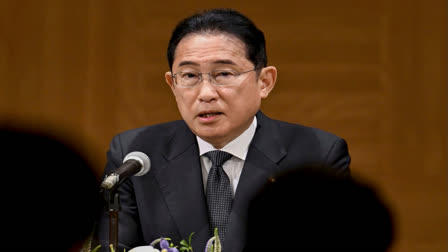Tokyo(Japan):Japan's Prime Minister Fumio Kishida was seen as a safe pair of hands when his party installed him three years ago, but he soon became a liability as scandals and inflation eroded his popularity.
Kishida, 67, will step down next month after announcing on Wednesday he was pulling out of a contest for leadership of the ruling Liberal Democratic Party and ahead of a general election scheduled for October next year.
A father-of-three and keen baseball fan, Kishida is the scion of a Hiroshima political family and has a low-key presence sometimes taken for a lack of charisma.
Taking office in 2021, Kishida touted his listening skills and promised a fresh stimulus package to revive the virus-hit economy, now the fourth-largest in the world.
He vowed to tackle Japan's demographic crisis and promote a more equitable "new capitalism", but these policies remained vague, as did his plans to pay for them.
Seeking to reduce oil and gas imports, under Kishida Japan has steadily been bringing its nuclear power stations -- shut down after the 2011 Fukushima disaster -- back online.
Despite having a liberal reputation, Kishida was reticent on hot-button social issues such as gay marriage, although his government -- which has five female ministers -- passed new laws on the number of women in corporate boardrooms.
On foreign policy he won plaudits, siding decisively with Ukraine after Russia's invasion in 2022, welcoming President Volodymyr Zelensky to a G7 summit in Hiroshima -- Kishida's hometown -- and visiting Kyiv.
Kishida also promised to hike military spending in a move welcomed by the United States as it seeks to counter China, while once-frosty relations with South Korea also improved.
But his failure to get to grips with rising consumer prices and scandals involving his party and family translated into tumbling poll ratings for the LDP, which has run Japan almost uninterrupted for decades.
"Unless Mr Kishida stepped down, (LDP insiders believed that) the LDP would face big trouble at the next general election," said Yu Uchiyama, political science professor at the University of Tokyo.
